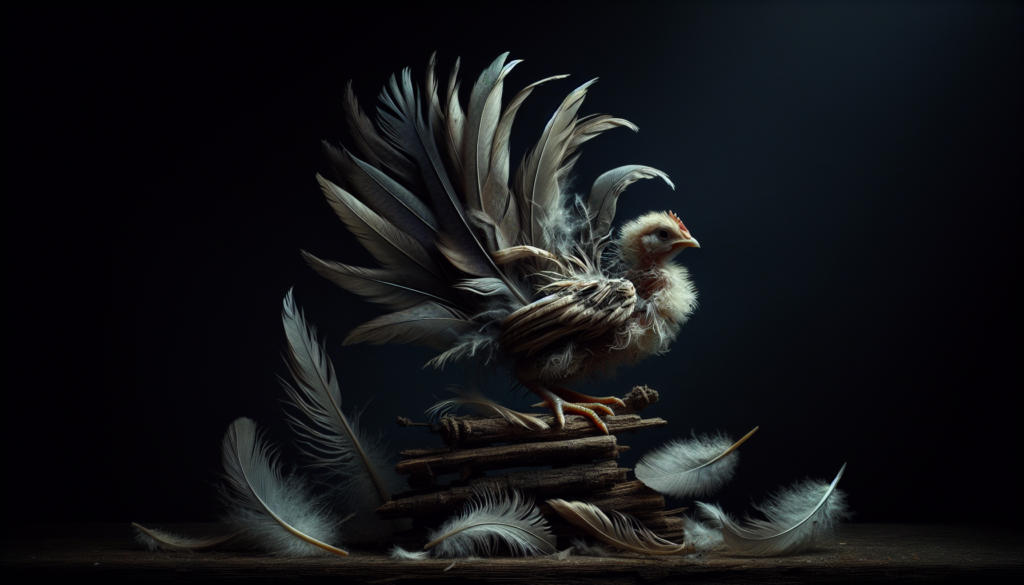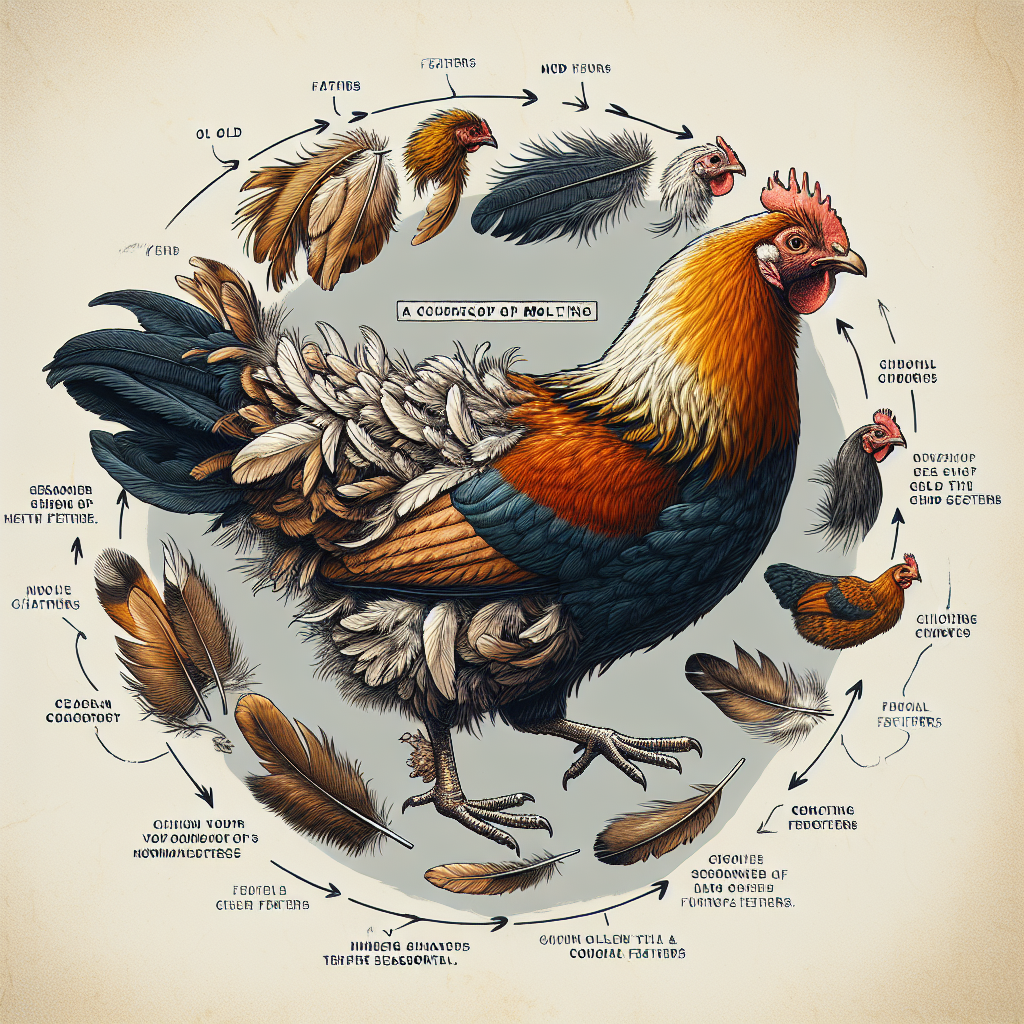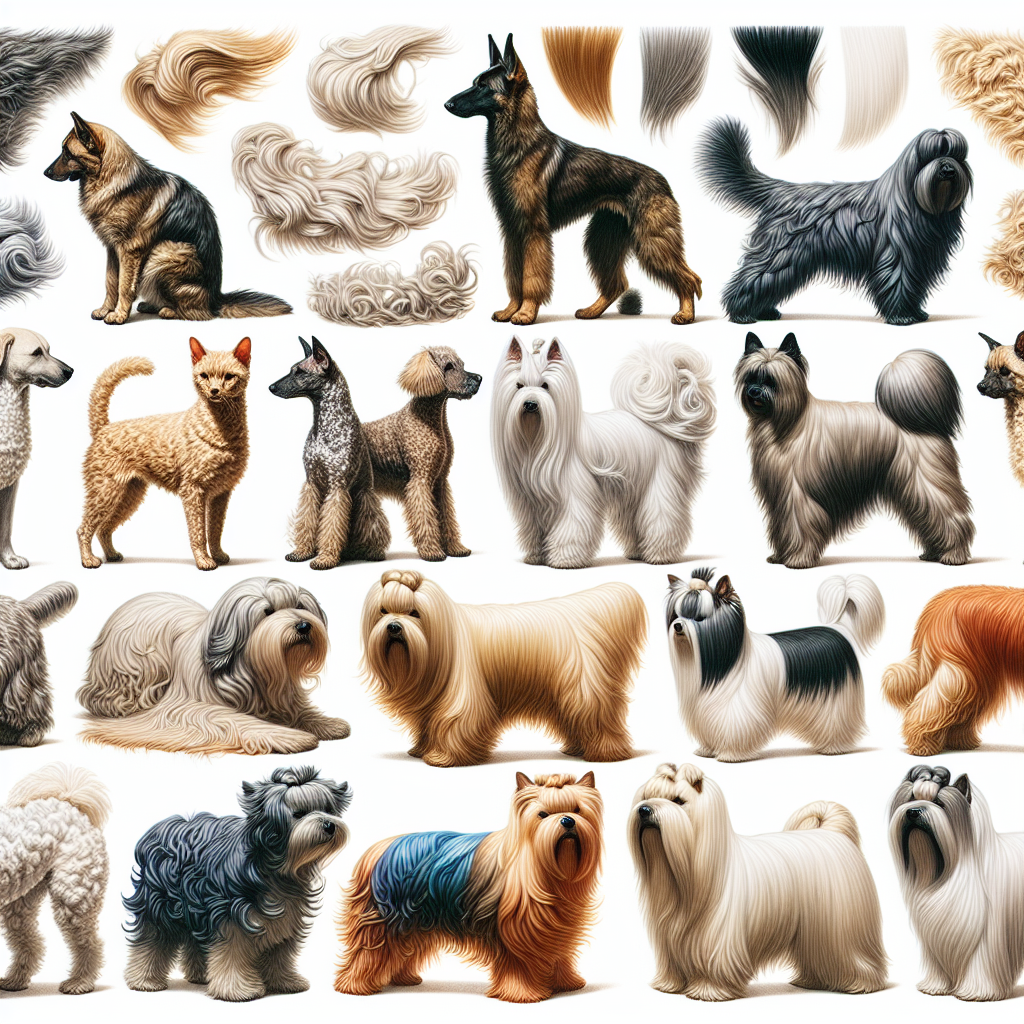Are you looking for ways to make sure your feathered friends have healthy and vibrant feathers after their molt? If so, you’ve come to the right place! In this article, we will explore some simple yet effective tips and tricks that will help promote the regrowth of beautiful feathers for your birds. From providing a balanced diet to creating a stress-free environment, we’ve got everything covered. So, get ready to see your feathered companions flaunting their stunning plumage once again!
Understanding the Molting Process
What is molting?
Molting is a natural biological process that birds go through to replace their old and worn-out feathers with new ones. During this process, birds shed their old feathers and grow new ones, ensuring that their feathers remain in optimal condition.
Why do birds molt?
Birds molt for a variety of reasons. The primary purpose of molting is to ensure that birds have healthy and functional feathers. Feathers are essential for birds as they provide insulation, aid in flight, and help with communication and courtship displays. Molting allows birds to replace damaged or worn-out feathers, ensuring that they can maintain their overall health and effectively perform these vital functions.
Different types of molting
There are different types of molting that birds undergo, depending on their species and age. The two main types of molting are partial molt and complete molt. During a partial molt, birds shed and replace only a few feathers at a time, usually in specific areas, while the rest of their feathers remain intact. In contrast, during a complete molt, birds shed and replace all of their feathers at once, resulting in a more noticeable change in their appearance.
Factors Affecting Feather Regrowth
Nutrition and diet
Proper nutrition plays a crucial role in the regrowth of healthy and vibrant feathers post-molt. Birds require a balanced diet that includes a variety of nutrients to support feather growth. Essential nutrients for feather growth include high-quality proteins, vitamins, and minerals. It is important to provide your feathered friend with a well-rounded diet that includes a variety of fresh fruits, vegetables, seeds, and pellets specifically formulated for their species.
Environmental conditions
The environment in which birds live can greatly impact their feather regrowth. Temperature and humidity levels should be maintained within an appropriate range to ensure that feathers grow properly. Extreme temperatures and excessively dry or damp conditions can hinder feather regrowth and lead to poor feather quality. Providing a comfortable and suitable living environment with adequate ventilation will help promote healthy feather growth.
Overall health and stress levels
A bird’s overall health and stress levels can significantly affect feather regrowth. Healthy birds are more likely to grow vibrant and strong feathers. Therefore, it is essential to provide proper veterinary care, ensure regular check-ups, and address any underlying health issues promptly. Additionally, high stress levels can negatively impact a bird’s molting process, leading to slow or abnormal feather growth. Creating a peaceful and secure environment for your bird and minimizing handling and disturbances will reduce stress and contribute to healthier feather regrowth.
Providing a Balanced Diet
Essential nutrients for feather growth
Feathers are primarily made up of proteins, so it is crucial to provide your bird with high-quality protein sources for optimal feather regrowth. Including a variety of lean meats, such as chicken or turkey, in their diet can provide the necessary amino acids for feather development. In addition to protein, vitamins and minerals are also essential for feather health. Vitamin A, biotin, and omega-3 fatty acids are particularly beneficial for promoting healthy feather growth.
High-quality protein sources
When selecting protein sources for your bird’s diet, opt for lean meats and protein-rich foods that are appropriate for their species. Cooked chicken, turkey, lean cuts of beef, eggs, and legumes are excellent sources of protein. It is important to avoid feeding your bird fatty meats, processed meats, or foods that are high in salt or sugar, as these can negatively affect feather regrowth and overall health.
Vitamins and minerals for feather health
To ensure your bird’s feathers grow back healthy and vibrant, it is essential to provide them with a diverse range of vitamins and minerals. Vitamin A is crucial for proper feather development and can be found in dark leafy greens, carrots, and sweet potatoes. Biotin, also known as vitamin H, is vital for feather strength and can be found in whole grains, nuts, and seeds. Omega-3 fatty acids, commonly found in fish oils, can support feather health and enhance feather shine and resilience.
Maintaining Optimal Environmental Conditions
Temperature and humidity
Birds require a specific temperature range and humidity level to promote healthy feather growth. It is important to provide your feathered friend with an environment that mimics their natural habitat. Most pet bird species thrive in temperatures ranging from 65-85°F (18-29°C). Additionally, maintaining a humidity level of around 40-60% can help prevent feathers from becoming overly dry or brittle. Using a thermometer and hygrometer can help you monitor and adjust the temperature and humidity levels in your bird’s living area.
Cleanliness and hygiene
Maintaining a clean environment is crucial for the health and well-being of your bird. Regularly cleaning their living area and ensuring proper hygiene will prevent the accumulation of dirt, dust, and potential irritants that can affect feather regrowth. Providing clean, fresh water for bathing and ensuring regular cage cleaning will help keep your bird’s feathers and skin in optimal condition.
Avoidance of excessive noise and stress
Excessive noise and stress can have a detrimental impact on feather regrowth. Birds are highly sensitive creatures, and prolonged exposure to loud noises or stressful situations can disrupt their molting process. To create a peaceful environment, try to minimize loud noises, such as vacuum cleaners or loud music, near your bird’s living area. Additionally, avoid placing their cage in high traffic areas or areas with frequent disturbances. Consistency in routine and providing a calm and predictable environment will greatly reduce stress levels and contribute to healthier feathers.
Reducing Stress Levels
Minimizing handling and disturbances
While it is important to interact with your bird, it is equally crucial to minimize handling and disturbances during their molting period. Handling a bird excessively or roughly can cause stress and disrupt their feather regrowth. When handling is necessary, use a gentle approach, and be mindful of their comfort. Additionally, try to minimize sudden loud noises or changes in their environment that may startle them and increase stress levels.
Creating a peaceful and secure environment
Creating a peaceful and secure environment is essential in reducing your bird’s stress levels. Provide them with a proper-sized cage that allows for comfortable movement and includes perches and toys for mental stimulation. Birds also require undisturbed rest, so it is important to place their cage in a quiet and low-traffic area of your home. Offering a safe and secure environment will help your bird feel at ease and contribute to better feather regrowth.
Consistency in routine
Birds thrive on consistency and routine, so maintaining a predictable schedule can help reduce their stress levels during molting. Try to establish a regular routine for feeding, playtime, and sleep to provide your bird with a sense of stability. Birds are creatures of habit, and a consistent routine can help them feel secure and comfortable, ensuring optimal feather regrowth.
Avoiding Feather Picking and Mutilation
Identification and treatment of causes
Feather picking and mutilation can occur for various reasons, such as boredom, stress, nutritional deficiencies, or underlying health issues. If you notice your bird engaging in feather picking or mutilation behaviors, it is essential to identify and address the underlying cause promptly. Consultation with an avian veterinarian can help determine the cause and provide appropriate treatment options.
Use of appropriate bird toys and distractions
Providing your bird with a variety of safe and engaging toys can help prevent boredom and reduce the likelihood of feather picking or mutilation. Toys that encourage foraging, chewing, and mental stimulation can keep your bird occupied and prevent them from focusing on their feathers. Rotate the toys regularly to maintain their interest and offer new and exciting distractions.
Consultation with avian veterinarian
If feather picking or mutilation persists or worsens, it is vital to seek veterinary guidance. An avian veterinarian will be able to assess your bird’s specific situation and provide you with professional advice and treatment options. They may recommend behavioral modifications, nutritional adjustments, or medication to address the underlying causes and promote healthy feather regrowth.
Monitoring Feather Regrowth
Observation of feather condition
Regularly observing your bird’s feather condition is crucial in monitoring their regrowth progress. Healthy feathers should be smooth, shiny, and vibrant in color. If you notice any abnormal changes in feather appearance, such as deformities, discoloration, or excessive breakage, it is important to investigate further to identify any potential issues that may be affecting regrowth.
Identifying abnormal feather growth
Abnormalities in feather growth can indicate underlying health problems or nutritional deficiencies. Feather abnormalities can include abnormal coloration, excessive molting, slow regrowth, or the presence of bald spots. If you notice any of these signs, consult with an avian veterinarian to determine the cause and implement appropriate interventions.
Regular health check-ups
Regular health check-ups with an avian veterinarian are essential for maintaining your bird’s overall well-being and monitoring feather regrowth progress. During these check-ups, the veterinarian will assess your bird’s overall health, conduct necessary tests, and provide guidance on any necessary dietary or environmental adjustments. By regularly monitoring your bird’s health, you can address any potential issues as soon as possible and ensure the regrowth of healthy and vibrant feathers.
Promoting Natural Preening
Providing bathing opportunities
Bathing plays a crucial role in a bird’s natural preening and feather maintenance. Offering your bird regular opportunities to bathe not only keeps their feathers clean but also promotes the release of natural oils that help with feather waterproofing and conditioning. Birds have different preferences when it comes to bathing; some may enjoy showering under a gentle stream of water, while others may prefer a shallow dish for bathing. Observe and accommodate your bird’s preferences to encourage natural preening habits.
Introduction of safe preening materials
Providing your bird with safe preening materials can further enhance natural feather care. This can include offering bird-safe branches with bark for them to chew on, as well as introducing appropriate bird toys that encourage preening and beak maintenance. Natural materials such as untreated wood, sisal rope, and palm fronds can offer stimulating textures for preening and help keep your bird’s feathers in top condition.
Social interaction with other birds
Birds are social creatures that benefit from interactions with their own kind. If you have multiple birds or can arrange supervised playdates with other bird owners, it can provide your feathered friend with socialization opportunities that mimic their natural flock settings. Social interactions can stimulate natural preening behaviors as birds observe and imitate each other’s grooming techniques.
Avoiding Harmful Chemicals
Choosing bird-safe cleaning and grooming products
When cleaning your bird’s living area or grooming them, it is crucial to use bird-safe products. Many household cleaning products can contain harmful chemicals that can be toxic to birds. Opt for avian-friendly cleaning solutions and groom your bird using products specifically formulated for their feathers and skin. Always read the labels and avoid products that contain chemicals such as ammonia, bleach, or artificial fragrances.
Avoidance of toxic fumes and substances
Birds have a highly sensitive respiratory system, and exposure to toxic fumes or substances can be detrimental to their health and feather regrowth. Keep your bird’s living area well-ventilated and away from potential sources of toxic fumes, such as cigarette smoke, aerosol sprays, scented candles, or non-stick cookware. Additionally, be cautious about exposing your bird to harmful substances, such as pesticides or household cleaners that emit strong odors.
Monitoring potential sources of contamination
Regularly inspecting your bird’s environment for potential sources of contamination can help prevent exposure to harmful substances. Check for any peeling paint, rusted cages, or toxic plants that your bird may come into contact with. Ensure that any indoor plants or perches are non-toxic to birds. By being vigilant and proactive in identifying and addressing potential sources of contamination, you can protect your bird’s health and promote optimal feather regrowth.
Seeking Veterinary Guidance
Consultation with avian veterinarian
In any situation where you have concerns about your bird’s feather regrowth or overall health, consulting with an avian veterinarian is highly recommended. Avian veterinarians are specially trained to address the specific needs of birds and can provide expert guidance tailored to your bird’s species and individual circumstances. They can assess your bird’s health, conduct necessary tests, and provide treatment options to address any feather-related issues.
Professional advice on specific needs
Every bird is unique, and their feather regrowth process may require individualized care and attention. Seeking professional advice from an avian veterinarian ensures that you receive accurate and tailored recommendations for your bird’s specific needs. They can guide you in areas such as nutrition, environmental adjustments, behavioral modifications, and medical treatments, providing the best possible care for your feathered companion.
Treatment options for feather-related issues
Feather-related issues can range from minor irritations to more significant health concerns. Avian veterinarians can assist in identifying the underlying causes of feather problems and provide appropriate treatment options. They may recommend dietary modifications, topical treatments, supplements, or medications to address specific issues such as feather plucking, abnormal molting, or feather infections. Follow their guidance closely to ensure optimal feather regrowth and overall well-being for your bird.
In conclusion, ensuring the regrowth of healthy and vibrant feathers post-molt requires a combination of factors. Providing a balanced diet that includes essential nutrients, maintaining optimal environmental conditions, reducing stress levels, and promoting natural preening habits are all essential. Additionally, avoiding harmful chemicals and seeking veterinary guidance when needed will greatly contribute to the health and well-being of your feathered friend. By following these guidelines and providing the care and attention your bird needs, you can ensure the regrowth of beautiful feathers that will keep them happy and thriving.




